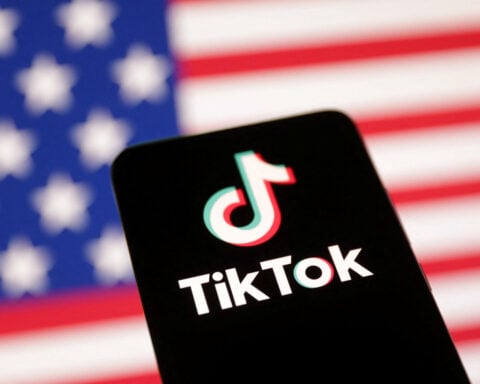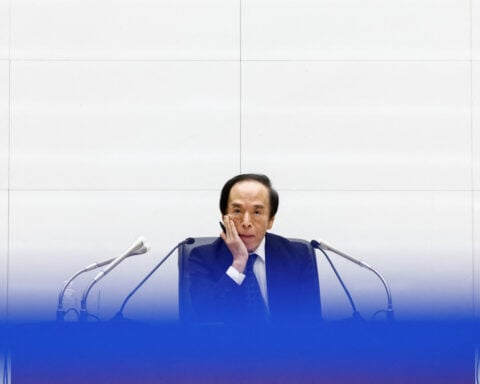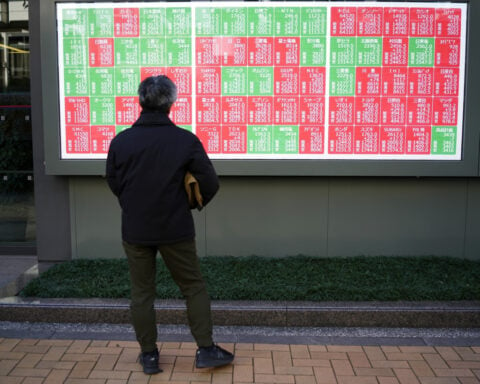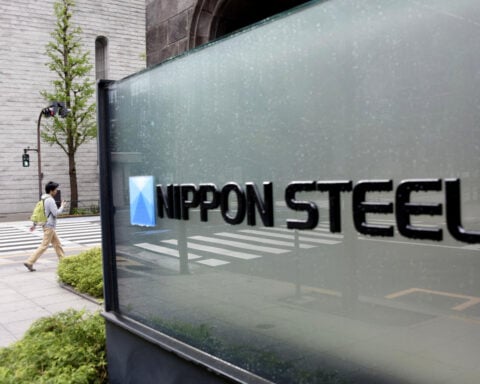By Helen Reid
LONDON (Reuters) - Moves by authorities in the European Union and elsewhere to end tax breaks for low-value parcels threaten Shein's profitability and risk denting the fast fashion retailer's long-term attractiveness ahead of its planned stock market debut, investors who focus on the sector said.
Shein, which sells $5 tops and $10 dresses online, confidentially filed early in June for a potentially blockbuster initial public offering (IPO) in London, Reuters revealed last month.
The fast-growing, China-founded group's ability to convince investors of the soundness of its business case will determine whether it is able to match the $66 billion valuation it achieved in a fundraising round last year.
Critics of Shein, including some lawmakers in the United States and Britain, argue it uses customs duty exemptions on low-value packages to undercut rivals on price and avoid customs inspections.
The European Union is discussing abolishing the duty-free limit, currently set at 150 euros, as part of a customs reform proposed in May 2023. Above that threshold, an import duty of 17% is applied to sports trainers, for example, and of 12% to T-shirts.
"In my eyes, this is the biggest uncertainty facing this IPO at the moment," said Adil Shah, portfolio manager at Delphi Funds, part of Storebrand in Oslo, which holds shares in retailer H&M. Shah plans to assess the investment case for Shein once the company provides more information.
In response to Reuters' questions about investors' concerns, Shein said its success comes not from the tax exemptions but from its "on-demand business model", which it says reduces waste and its stock of unsold products.
Shein offers a far wider selection than rivals, thanks to thousands of largely China-based suppliers which take small orders and scale up based on demand.
"We look forward to working with policy makers and industry peers to review current frameworks," Shein told Reuters with regards to the moves by several countries to close tax loopholes.
VALUATION QUESTION
The growing debate on ending tax breaks for low-value parcels is creating regulatory uncertainty ahead of Shein's IPO.
South Africa's tax authority plans to increase duties on imported parcels of clothing worth less than 500 rand ($27.40). Low-value parcels, currently charged about 20% import duty and with no value added tax, would now be subject to a 45% duty, plus VAT of 15%.
Brazil's President Luiz Inacio Lula da Silva signed into law a 20% tax on international purchases of up to $50 last month.
In the United States and Britain, some retailers and politicians are pushing to end tax breaks on parcels worth less than $800 or 135 pounds ($173.76) respectively, although there is no imminent move by authorities to do so.
Changes to import duty regimes may force Shein to either increase prices, making its offering less competitive, or cut its thin profit margin. Neither option would be favourable for the company, said Jon Hudson, portfolio manager at Premier Miton in London, which invests in ABF, the owner of fast-fashion retailer Primark.
Companies' valuations are directly linked to expectations for their future growth and profitability.
Shein has not reported any financial figures, but analysts at Bernstein in April estimated its net profit more than doubled last year to $2 billion from $700 million, giving it a profit margin of 4.4% of sales.
"As long as these loopholes exist, the uncertainty will be an overhang for the stock - the market will always be a bit concerned that that tax advantage is going to be cut," said Hudson.
($1 = 18.2468 rand)
($1 = 0.7769 pounds)
(Reporting by Helen Reid, additional reporting by Kane Wu, editing by Lisa Jucca)

 Michigan Gov. Gretchen Whitmer, a potential 2028 candidate, wants to find common ground with Trump
Michigan Gov. Gretchen Whitmer, a potential 2028 candidate, wants to find common ground with Trump
 Biden promised to turn the page on Trump. Now he's being replaced by him
Biden promised to turn the page on Trump. Now he's being replaced by him
 Firefighters prepare for increasing gusts following brief reprieve for LA area
Firefighters prepare for increasing gusts following brief reprieve for LA area
 Nippon Steel wants to work with Trump administration on US Steel deal, Mori tells WSJ
Nippon Steel wants to work with Trump administration on US Steel deal, Mori tells WSJ
 After cable damage, Taiwan to step up surveillance of flag of convenience ships
After cable damage, Taiwan to step up surveillance of flag of convenience ships
 BOJ will raise rates if economy, price conditions continue to improve, Ueda says
BOJ will raise rates if economy, price conditions continue to improve, Ueda says
 Manatees congregate in warm waters near power plants as US winter storms graze Florida
Manatees congregate in warm waters near power plants as US winter storms graze Florida
 AAPI adults prioritize immigration, but split on mass deportations: AP-NORC/AAPI Data poll
AAPI adults prioritize immigration, but split on mass deportations: AP-NORC/AAPI Data poll
 As Los Angeles burns, Hollywood's Oscar season turns into a pledge drive
As Los Angeles burns, Hollywood's Oscar season turns into a pledge drive
 As fires ravage Los Angeles, Tiger Woods isn't sure what will happen with Riviera tournament
As fires ravage Los Angeles, Tiger Woods isn't sure what will happen with Riviera tournament
 Antetokounmpo gets 50th career triple-double as Bucks win 130-115 to end Kings' 7-game win streak
Antetokounmpo gets 50th career triple-double as Bucks win 130-115 to end Kings' 7-game win streak








